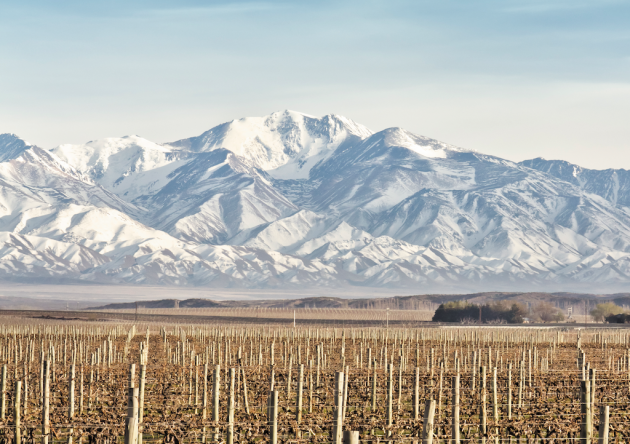
Tim Atkin MW: Critical times for Argentina
Every year at the end of my tour of Argentina, I sit down with Dr Nicolas Catena of Bodega Catena Zapata. He wants to talk about wine – new bodegas and regions, the latest vintage – while I want to talk about economics, his speciality. Before he became one of the leading figures in the Argentinian wine industry, Catena was a top academic and is still enormously perceptive.
He is essentially an optimist, but this February he looked glum. “We will not have good news in the near future,” he predicted. How right he was. Argentina is not yet on the brink of economic collapse, its humiliating fate in 2001, but inflation is back above 30%, interest rates are at 60%, the peso is at its lowest rate against the dollar and president Mauricio Macri’s government has applied to the International Monetary Fund for a $50 billion loan.
Argentina has been through worse times. In March 1990, inflation hit 20,262.80%, a figure that surely qualifies for some sort of global record. Of course, high inflation is pretty much a constant in Argentina – the average rate between 1944 and 2018 was 199%, even if there have been periods of relative stability, notably in the 1990s. But the other stuff is worrying. Argentina is on the ropes again.
When Macri was elected in 2015, it looked as if he might end the country’s financial volatility. First signs were good, as investors responded well to Argentina’s floating exchange rate and liberalised economy. The government borrowed money to pay off its inherited deficit, but it appeared to be in control. Now, facing a much stronger dollar, which makes that repayment more expensive, Macri has turned to the IMF. If that doesn’t work, recession beckons.
↓
Sizeable crop
What does this mean for the wine industry? For exporters who sell in pesos, the weak exchange rate is a potential boon, but most large companies prefer to trade in dollars or euros. Things that are imported – barrels, for instance – are way more expensive, while inflation has pushed up the cost of labour, transport and utilities. At least the 2018 crop was sizeable – 31% bigger than frost-affected 2017 – but the cost of producing wine is increasing by the vintage. Sooner rather than later, that will have an impact on ex-cellar prices.
One arguably positive result of all this is that Argentina has moved out of the world’s bulk wine bargain basement. It simply cannot compete with the likes of Chile, South Africa and Spain at the prices they can charge. Argentina, as one producer put it, is effectively condemned to quality. The encouraging thing is that consumers appear to be prepared to pay for premium Argentinian wines, which is just as well, as that is the most profitable sector of the industry. Catena admitted to me he uses his headline wines to subsidise his mass-market brands.
Talking of premium wines, the fate of the Gaucho Group, currently still trading but looking for a buyer after the collapse of its Cau brand, is hugely important to the future of Argentina in the UK. The 16 branches sell around 350,000 bottles of Argentinian wine each year and are a vital shop window for the best as well as up-and-coming producers. But now that buyer Phil Crozier has left to become a brand ambassador for Wines of Argentina, who will replace his passion for the country and knowledge of its wines? If Gaucho survives, one rumour is that it will no longer focus just on Argentina and is already selling off stock.
The irony of Argentina’s economic situation is that the country is making the best wines in its history. It should be booming, but that stubborn inflation rate has put off outside investors. The last significant foreign purchase was Russian Yuri Shefler’s SPI Group’s acquisition of Achával Ferrer in 2011. Earlier this year, Spanish-owned O Fournier was sold for $9 million to an Argentinian company. Only the locals, it seems, have faith in the future. But at least they’re used to instability. As Hans Vinding-Diers of Noemía puts it: “Argentina is up against the wall all the time, so if people are still making wine, they must be passionate about it.” Let’s hope the IMF cuts the country some slack.
Keywords:
- wine
- UK
- Argentina
- Wines
- Inflation
- year
- future
- wine industry
- one
- IMF
- argentinian wine
- Argentinian
- rate
- catena
- industry catena
- exchange rate
- market brands
- 350 000 bottles
- market brands talking
- mass market brands
- premium argentinian wines
- industry catena admitted
- SPI




